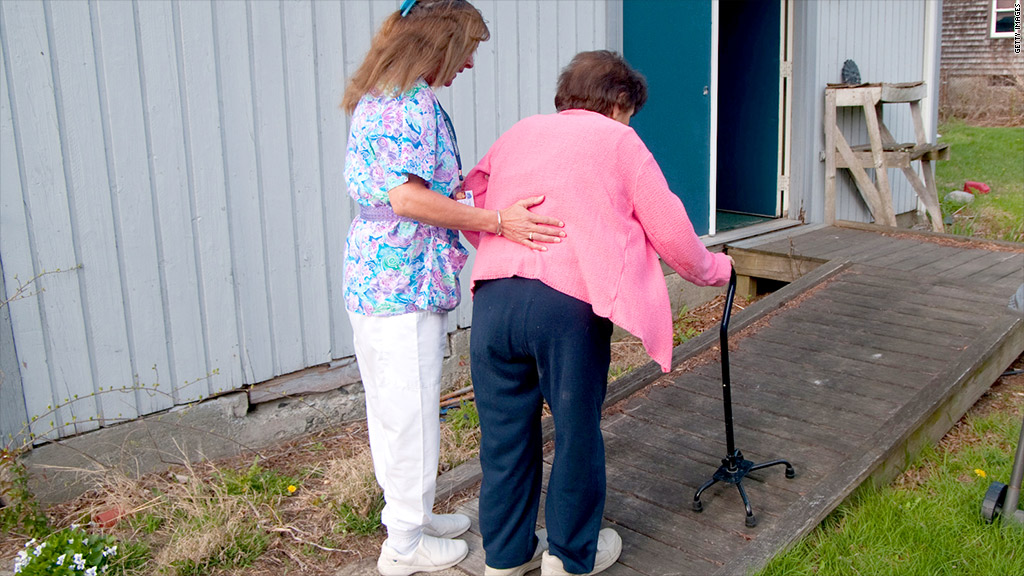
For seniors desperate to avoid nursing homes, government-funded services such as free rides to doctors' appointments are key to independent living.
But the $80 billion in deep federal budget cuts this year has trimmed many such services, putting seniors more at risk of losing their ability to live at home, according to a survey of agencies that work with the elderly.
The government helps pay for many programs run by nonprofits that arrange free rides for seniors to the local bank or grocery store, hot meals for the elderly as well as "companions" who can help with cooking, light housecleaning or personal hygiene.
Some 76% of agencies surveyed said the sequester, or the deep spending cuts that kicked in on March 1, have prevented them from meeting the needs of seniors staying at home. The National Association of Area Agencies on Aging on Tuesday released the survey of 69 member agencies across nine states.
Related: Spending cuts are hurting economy
"This level of cuts is truly going to affect the ability of many older adults to remain in the home," said Sandy Markwood, CEO of the National Association of Area Agencies on Aging.
More than two-thirds of programs that deliver meals to seniors and half of all programs that drive seniors to doctors and dentists have cut back on trips, according to the survey.
All this will end up costing the country more.
It's much cheaper to help seniors live at home than it is to pay for a year of nursing home care. That's according to some 38 different studies from 2005 to 2012, said the AARP, which is one of the chief advocacy groups for people over 50.
The median cost per hour for a senior "companion" is $18 an hour, far less than the daily cost of a care in a nursing home: $207 per day for a shared room, according to 2013 report by Genworth Financial (GNW), which sells insurance that pays for long-term care.
That's why nonprofits are concerned about budget cuts. In Iowa, some of the $74,000 in budget cuts trimmed a program that builds ramps to front doors and makes bathrooms safer with more rails and grab bars.
"We know we have people who need to widen their doorways for wheelchairs, and we just can't do that," said Barbara Morrison, director of the Connections Area Agency on Aging, which serves seniors in 20 counties in Western Iowa.
Cuts have also hit another program aimed at helping caregivers who live with seniors who need care every day. That program, called "respite care," provides replacement caregivers for just four hours each week, Morrison said.
Related: Meals on Wheels budget cuts: Crisis developing
The Aging and Long Term Care of Eastern Washington is facing another $150,000 cut in 2014, same as this past year, said director Nick Beamer. The group got by this year, by tapping unused funds left over from previous years. But that's gone now, Beamer said.
The agency is in the process of whittling down the menu to include meals with cheaper and fewer ingredients. It is also planning on cutting back on the number of meals and cut transportation, he said.
"This safety net that's there (for seniors living at home) is being shredded," he said. "I foresee a rise ... in the Medicaid population" who will be forced to move into nursing homes, Beamer said.


